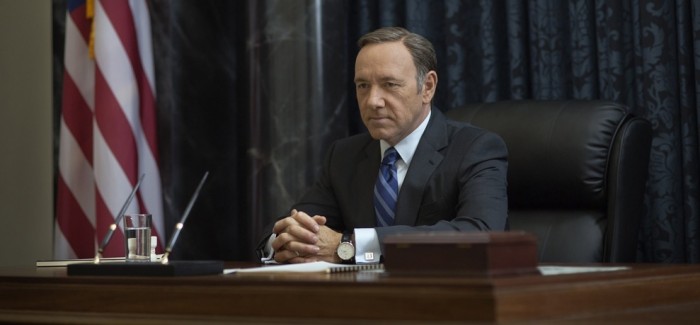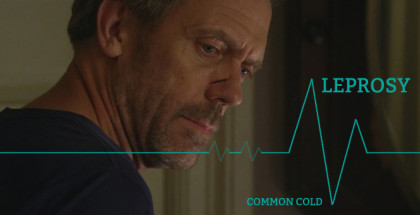Netflix TV review: House of Cards Season 2, Episode 13 (Chapter 26)
Review Overview
Sincerity
10Power
10Truth
10Chris Bryant | On 05, Apr 2014
Hello there. Yes, you. Reading these words I have written and weighing them against your own views on House of Cards. Did you enjoy it? I certainly did.
I watched it at home, usually in my lounge (in a big, comfy chair) on a day off work. As many people have explored, in many articles, I followed the trend of watching House of Cards in bulk. A “binge”, they call it. I’d have a coffee and a cigarette between each couple of episodes. I currently have a bottle of water.
I like Frank. There’s no compromise, no weakness and yet this does not make him predictable. I am certain at all times that he is working to his own ends, even in the last episode when he seemed so honest and sincere. Liars are honest too, sometimes, you know.
House of Cards is difficult. It’s densely political and I have little knowledge of the workings of the American political system. It’s consistent, which makes it tricky to judge individual episodes. For example, you’re unlikely to find an episode where Spacey is anything less than perfect. The same goes for Robin Wright. They’re human, yet they’re so very, very tough. Of all the clever tricks, all of the cutthroat, witty lines (“Doormats and Matadors” is a personal favourite) I think I love House of Cards most for them, their relationship. So efficient, so solid.
Chapter 26 is, as expected, surprising. Everything quiet becomes unbelievably loud. Doug and Rachel’s Stockholm-syndrome struggle reaches a very blunt point and Gavin’s quiet rebellion against the FBI goes up a gear when he meets with Stamper. As for the Tusk, Walker, Feng triple threat… well, that all goes to hell. And is met there by a Chief Whip from South Carolina in a very impressive chair. The final scene says it all. Not only is it brilliant, it is well-loved and self-aware. Beautiful written, passionately executed, intelligently acted. It’s a masterpiece.
The episode marks the culmination of two seasons of dedicated, unwavering commitment by Frank. For what? Is he power-hungry or is he just vengeful about being passed over for that promotion all those years ago? It’s the same unwavering, decisive conviction that has been shown by Beau Willimon, Andrew Davis, Michael Dobbs, Kevin Spacey, David Fincher and everyone else. The cast and crew deserve every nomination, every award and every “thank you” in the street – especially the lighting crew. I particularly enjoy their work. (Second only to Gavin’s guinea pig, as far as I’m concerned.)
Beau Willimon stated: “TV will not be TV in five years from now. Everyone will be streaming.” Almost a year after Netflix commissioned their first piece of original programming, Lilyhammer, they delivered House of Cards. Produced and directed by David Fincher and starring Kevin Spacey, the budget per season is around $55 million. Nominated for Golden Globes and more, as well as being available everywhere Netflix is, it could be argued that House of Cards changed the game. Primarily by me, I’d argue that. With anyone.
I think it’s quite clear how good, and how important, House of Cards is. It’s monumental. It’s a well-timed treachery. It’s a luxurious Southern drawl breaking the forth wall. It’s a new style of loving partnership that cannot be competed. It’s a shocking murder and an evening cigarette. It’s a rowing machine. It’s the story of hard work overcoming power and money, is it not? It’s ambition, of course, but mixed with an honest, sincere survival-of-the-fittest mentality. It’s hard work and survival. It’s powerful, in every sense of the word.
Now sit down with me, I’ll get the coffee, and we’ll await Season Three. By the way, the comfy, big chair is mine.


















